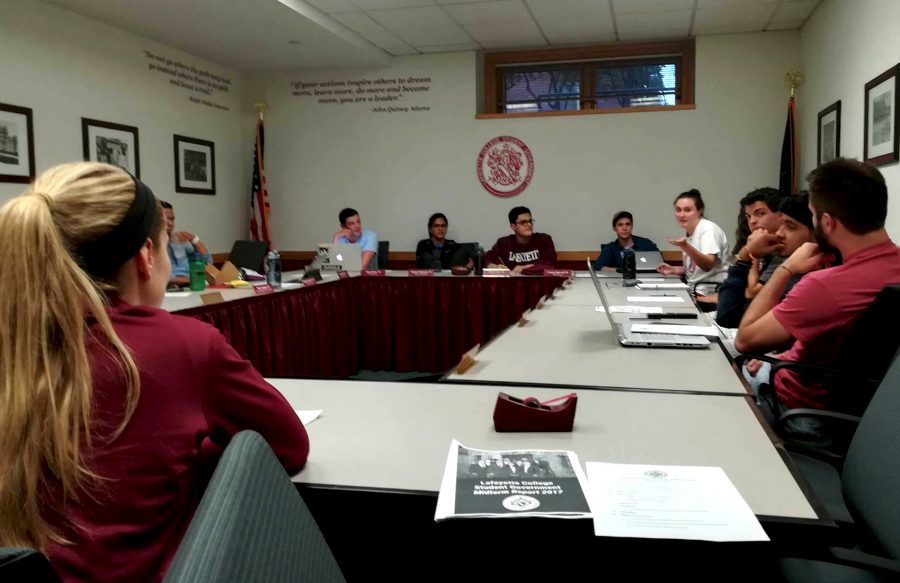Preparing for their transition phase next year, the only five members of student government left from last semester are looking to keeps its minimal functions going. During these next four months, student government will handle student club recognitions, the upcoming elections beginning March 1 with the student body president, budgeting and not much else.
Toward the tail end of last semester, student government presented proposed changes to its structure and bylaws to the faculty for a vote. The proposal, which was approved, changed the calendar-year terms to academic ones, leaving the Spring 2018 semester in a limbo between the two systems of government.
Before the bylaw changes, 15 members comprised student government. With the timeline of student government terms changing, new elections were not held, but some on student government vacated their positions. About half of those who vacated went abroad and half left their posts “because they did not sign up for [a third semester],” student government president Bilal Akbar ’18 said.
“We’re treating it like we’ve finished this term, but this semester is an awkward space in the middle,” said Akbar, who is three weeks into his third semester as president. “[Some students currently abroad] do plan on returning so that would be of great value to the new administration because [of their] experience.”
The bylaw changes to be implemented for fall 2018 added 21 positions to student government. Twenty-six out of the 36 total positions will be chosen on an application-and-interview basis. As for the other 10, the president and vice president will be elected in March, followed by the election of the treasurer, executive secretary and six other committee directors.
The 26 positions will be divided among specific committees, such as sustainability, athletics and Greek life.
Kristin Cothran, Director of Student Involvement and advisor to student government, said that students don’t necessarily have to be involved in the corresponding parts of campus to be on the committee. They could just have a “passion” for that particular area, she said. She emphasized that a main objective of this semester’s student government is to make sure that elections have enough candidates and run smoothly, she said, especially with this being the first go-around for the new system.
She added that barring any small chance of a shake-up, she will remain student government’s advisor and hopes to see it succeed in the future.
At the start of last semester, Akbar said that the results of a student survey about student government told him there was a need for the organization to connect with marginalized students more. Reaching the end of his term, he wrote in an email that he is proud of the progress student government made on that front.
The only reason he wouldn’t call student government completely successful in reaching out to marginalized students is “because in such things there’s always a lot more work that needs to be done. However, I’m happy with the progress we’ve made in terms of supporting student organizations representing marginalized students this past year,” he wrote.
Saeed Malami ’20, who became student organizations chair this semester after the departure of the previous incumbent, said one of the reasons he stayed on student government for another semester was a problem with inclusivity he saw on campus.
“I’m very concerned about different things on campus especially regards to the work of encouraging an inclusive environment for everyone to be able to speak, because that was something that I felt that really drove me to in fact join student government in the first place,” he said. Now that he is in charge of club approvals, he said he will look to streamline that process in order to make it easier for the next student government.
Akbar, in his End of Term Memorandum to the student body, wrote that he hopes this new “constitutional framework” of student government will provide for more inclusivity, and that he is proud of what student government accomplished during his presidency. He highlighted a resolution in which student government “condemned the rhetoric towards students of color, LGBTQIA people and undocumented students that has become commonplace in national politics,” the formation of the Ad Hoc Committee on Ensuring Inclusive Dialogue and other resolutions “supporting the aims of student organizations like Quest, ETA (Equity, Transformation and Accountability Board) and PASA (Pards against Sexual Assault).”




































































































